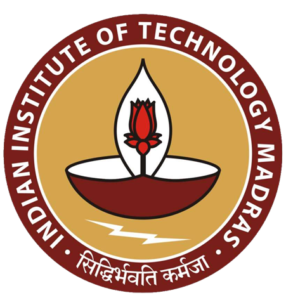
PACT-Digi-PULSE
Project
Project Brief
The PACT Digi PULSE (Partnering for Advancing Carbon-neutral Transitions using Digital-twin based Planning for Urban Living and Sustainable Environment) project for the city of Thoothukudi aims to transform the Indian city’s urban planning and mobility landscape through a comprehensive climate-integrated approach.
The initiative supports India’s Net Zero 2070 vision and UK PACT’s objectives by embedding climate considerations into city planning, overcoming institutional barriers, and enabling access to climate finance.
Thoothukudi is an emerging energy and industrial hub, with industries and coal-fired thermal power plants dotting its periphery. The coastal city has been plagued by major pollutants. Some challenges the city faces include:
- Environment and Climate: Industries in urban areas cause air and water pollution. These urban areas are also increasingly vulnerable to climate hazards like flooding and droughts. Current planning frameworks lack integration due to poor coordination between departments governance levels. Robust data-driven decision-making systems are needed for evidence-based planning mechanisms to enable effective urban management.
- Infrastructure and Transport: Upcoming infrastructure and transport projects are likely to add more pressure to urban centres. Managing passenger and freight movement effectively is crucial to support new industrial zones, however, much of the necessary infrastructure requires significant investment.
- Urban Planning and Coordination: Current urban planning frameworks lack integration across spatial, strategic and sectoral dimensions, further complicated by limited coordination between departments and weak integration across governance levels. Robust, data-driven decision-making systems and evidence-based planning are needed for effective urban management.
The PACT Digi PULSE project will address these challenges in Thoothukudi’s urban development trajectory by focusing on three critical themes:
- Climate-integrated urban planning
- Data-driven approaches
- Climate finance acceleration
Recognising Thoothukudi’s strategic importance as a port city with significant growth potential, the project aims to provide technical assistance to overcome institutional and technical barriers to climate-sensitive urban planning and mobility.
This strategic approach addresses Thoothukudi’s environmental challenges and contributes to India’s commitment to achieving Net Zero by 2070, positioning the city as an example of sustainable urban development.
Objectives
The key aims of the project include:
- Strengthening institutional capacity and improving governance coordination
- Developing integrated frameworks for climate-resilient urban planning and sustainable mobility, including climate financing
The project will develop replicable pathways for climate-sensitive urban development and sustainable strategies that reduce urban greenhouse gas emissions, to enhance climate resilience for Tier-2 cities in India.
Deliverables
Drawing upon extensive expertise in reducing emissions across global cities, Cenex will:
- Develop a detailed inventory of GHG emissions from urban mobility sources, providing a baseline for tracking emissions and identifying reduction opportunities.
- Create a strategy for integrated climate-responsive urban mobility planning
- Facilitate a real-time data portal for the environment and mobility system in conjunction with the city’s Integrated Control and Command Centre.
- Assist in capacity development and ‘knowledge share’ for stakeholders.





